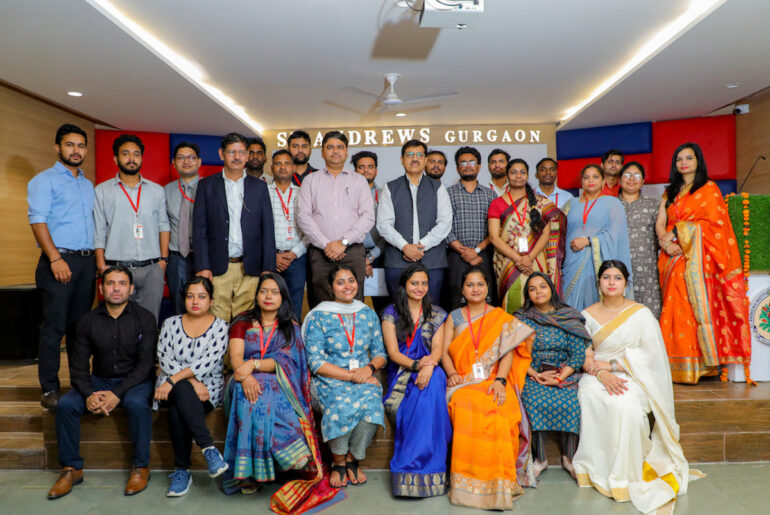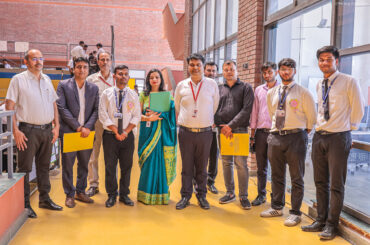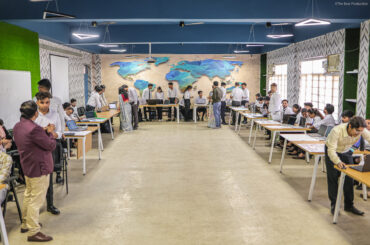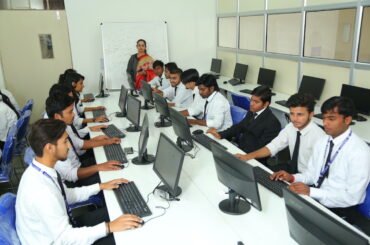BCA Course
The BCA course is an undergraduate program in computer applications, usually lasting three to four years, depending on the institution and the country’s educational framework.
It focuses on various aspects of computer application, including software design, programming languages, database management, computer network, web development, and computer applications in business.
The curriculum of a BCA (Bachelor of Computer Applications) program usually includes both theoretical knowledge and practical skills. Students may learn programming languages like C, C++, Java, Python, and others, as well as database management systems such as SQL. Additionally, they might study topics like computer architecture, operating systems, data structures, algorithms, software engineering principles, and computer networking.
BCA degree often incorporate hands-on projects, internships, and practical training to give students real-world experience and prepare them for careers in the field of information technology. When choosing a BCA college, consider factors such as fees, eligibility criteria, practical aspects, job readiness, industry-relevant curriculum, and placement support.
Graduates of BCA degree can pursue various career paths, including web development, database administration, systems analysis, network administration, IT consulting, and more.
Some of the most opted courses in India and St. Andrews college or different Engineering college or Management colleges are as follows:-
- Btech
- Btech CSE
- Btech ETCE
- MTech
- BCA
- BBA
- MBA
- MCA
- DPharma – St. Andrews College of Pharmacy
- BPharma – St. Andrews College of Pharmacy
- BArch – St. Andrews College of Architecture
BCA Course Duration
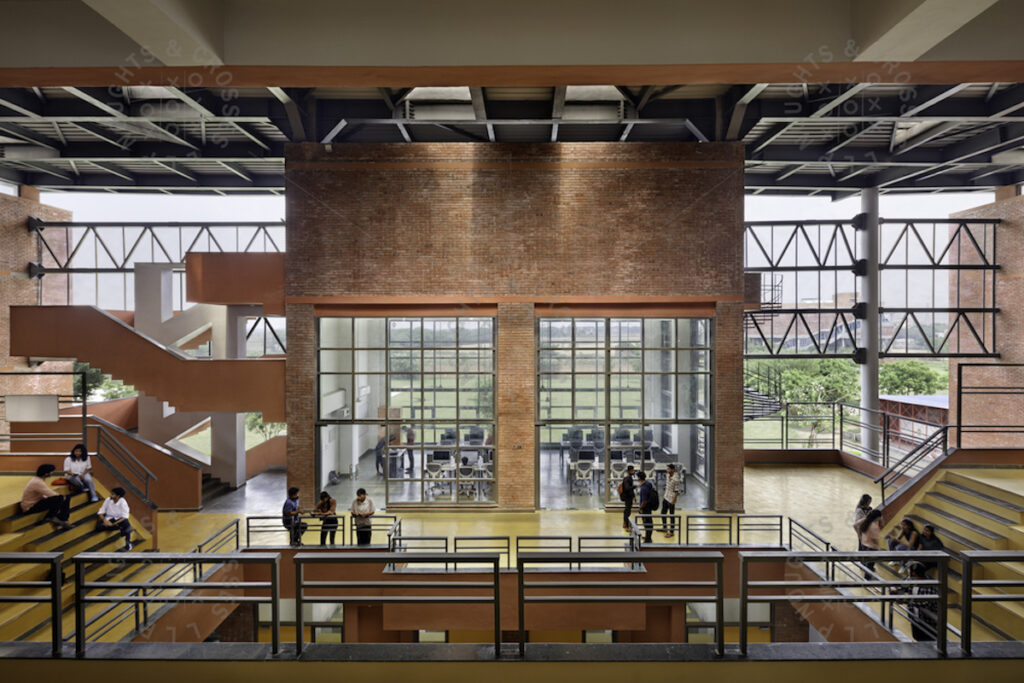
The duration of a BCA (Bachelor of Computer Applications) program typically spans three to four years, depending on the educational institution and the country’s educational system.
Here’s a breakdown of the typical BCA Course duration:
Three-Year Program
In many countries, including India, BCA course is structured as a three-year undergraduate degree course. The three-year BCA course duration consists of six semesters, with each semester lasting approximately six months.
Four-Year Program
In some educational systems or institutions, particularly in countries like the United States, Canada, and certain European countries, BCA courses may be designed as four-year undergraduate degree courses.
These programs often include additional coursework or requirements, such as internships or co-op placements, which extend the program duration. Four-year BCA course typically consists of eight semesters.
BCA Application Process

The application process for BCA (Bachelor of Computer Applications) degree in India typically involves several steps. Here’s a general overview of the process:
Research and Selection of Colleges
Research various BCA colleges and universities offering BCA courses. Consider factors such as reputation, accreditation, faculty, infrastructure, placement opportunities, and location. Create a list of colleges you’re interested in applying to.
Check BCA Eligibility Criteria
Review the eligibility criteria for each college or university you’re considering. Ensure that you meet the required educational qualifications, minimum percentage criteria, and any other specific requirements.
Application Form
To pursue BCA obtain the application form for the BCA course details from the respective college or university. Application forms may be available online on the college’s official website or in person from the admission office.
Fill Out the Application Form
Carefully fill out the application form with accurate personal, educational, and contact details. Follow the instructions provided in the application form and ensure that all required documents are attached.
Submission of Application Form
To pursue BCA submit the completed application form along with the required documents to the college or university within the specified deadline. Pay the application fee, if applicable, through the specified mode of payment.
Entrance Exams
If the college or university conducts an entrance exam for admission to the BCA course, register for the exam as per the instructions provided. Adhere to the exam schedule and prepare accordingly.
Admit Card
If you’re required to appear for an entrance exam, download the admit card from the official website of the respective exam conducting authority. Carry the admit card to the exam center on the day of the exam.
Entrance Exam
Attempt the entrance exam as per the prescribed exam pattern and BCA syllabus. Follow the instructions provided by the exam invigilators and manage your time effectively during the exam.
Result Declaration
After the entrance exam, wait for the results to be declared by the respective exam conducting authority. Check the official website or other designated channels for result announcements.
Counselling Process (if applicable)
If the college or university conducts counselling for admission to the BCA degree, participate in the counselling process as per the schedule provided. Attend counseling sessions, submit required documents, and follow the instructions provided by the counselling authorities.
Admission Confirmation
Once you receive the admission offer from the college or university, confirm your admission by paying the admission fee and completing any additional formalities specified by the institution.
Commencement of Classes
After confirming your admission, attend the orientation program and commence classes as per the academic calendar of the college or university.
BCA Eligibility Criteria
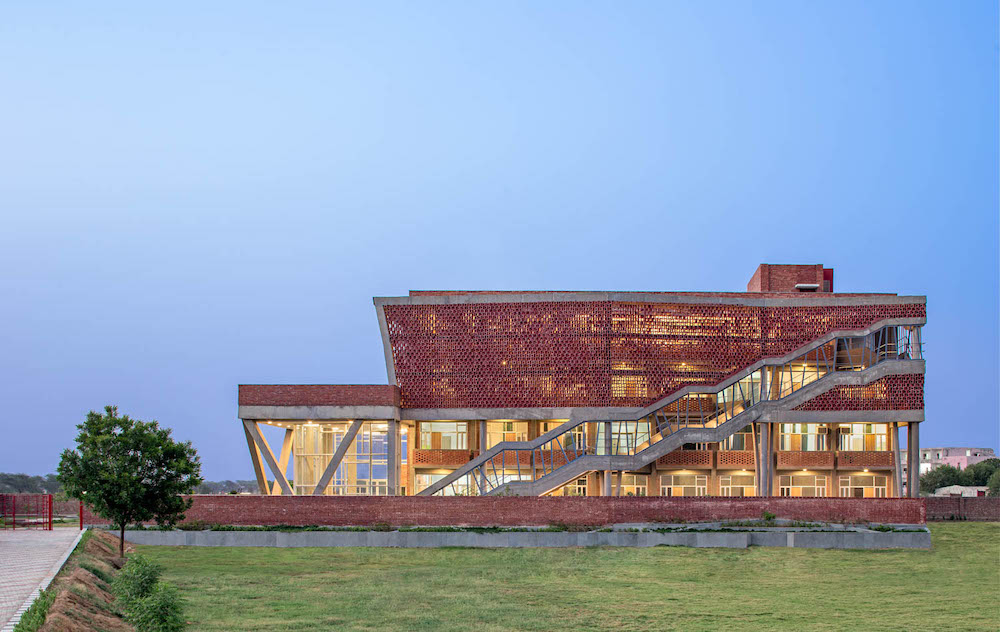
The eligibility criteria for Bachelor of Computer Applications (BCA) programs may vary slightly depending on the educational institution and country-specific regulations.
However, here are the general eligibility criteria commonly observed:
Educational Qualifications
Applicants are required to have finished their secondary education (high school) or an equivalent qualification from an accredited board or institution.
Minimum Percentage
Many institutions require candidates to have attained a minimum percentage in their qualifying examination, often around 50% to 60%. However, the specific percentage requirement may vary between institutions.
Subject Requirements
Candidates should have studied specific subjects at the secondary level. Mathematics is usually a mandatory subject, while some institutions may also require candidates to have studied Computer Science or Information Technology.
Language Proficiency
Particularly for international students or at institutions where English is the medium of instruction, proficiency in the language of instruction, typically English, may be necessary.
Entrance Examinations
Some institutions conduct entrance examinations for admission to their BCA course. These exams assess the candidate’s aptitude in areas such as mathematics, reasoning, and English language skills. The specific entrance exam requirements vary between institutions such as .
Age Limit
There may be an upper age limit for admission to BCA courses, although this criterion is less common and may vary between institutions.
Reserved Categories
Institutions often have reserved seats or relaxation in eligibility criteria for candidates belonging to certain categories such as Scheduled Castes (SC), Scheduled Tribes (ST), Other Backward Classes (OBC), and Persons with Disabilities (PwD), as per government regulations.
BCA Admission Process

The admission process for the BCA program in India typically involves several steps, which may vary slightly between institutions.
Here is a general overview of the BCA course Admission process:
Research and Selection of Colleges:
Identify the BCA colleges and universities offering the BCA course.
Check the specific eligibility criteria, admission process, and deadlines for each institution.
Fulfilling Eligibility Criteria
Ensure you meet the minimum educational qualifications, age limit, and any other specific requirements set by the institution.
Application Form:
Obtain the application form from the respective college’s official website or admission office.
Fill out the application form accurately, providing all necessary personal and academic details.
Entrance Exams (if applicable)
Some institutions conduct entrance exams for BCA course admissions, such as:
IPU CET (Indraprastha University Common Entrance Test)
Prepare for the entrance exam by studying subjects like mathematics, logical reasoning, and basic computer knowledge.
Appear for the entrance exams on the scheduled dates.
Merit-Based BCA Admissions
For colleges that do not conduct BCA entrance exams, admissions are often based on the merit of the 10+2 examination scores.
Ensure you have a competitive score to increase your chances of admission.
Submission of Documents
Submit all required documents, which may include:
10th and 12th mark sheets and certificates
Transfer certificate
Migration certificate (if applicable)
Passport-sized photographs
Identity proof (Aadhar card, passport, etc.)
Category certificate (if applicable)
Personal Interview/Counseling (if applicable)
Some colleges may conduct a personal interview or counseling session as part of the selection process.
Prepare to discuss your academic background, interests, and reasons for choosing the BCA program.
Admission Offer and Fee Payment
Once selected, you will receive an admission offer from the institution.
Pay the required BCA admission fee within the stipulated time to confirm your seat.
Complete any additional formalities as specified by the college.
Commencement of Classes:
After completing the BCA admission process, attend the orientation program (if any) and start attending classes as per the academic schedule.
BCA Course Fee Structure

The fees for Bachelor of Computer Applications (BCA) programs can vary significantly depending on various factors such as the country, the reputation and ranking of the educational institution, whether it is a public or private institution, the location of the institution, and any additional facilities or services provided as part of the program.
Here are some general considerations regarding BCA course fee:
Public vs. Private Institutions
Public colleges (government-funded) often have lower tuition fee compared to private colleges. However, BCA course fees at private colleges can vary widely and may be higher due to factors such as infrastructure, faculty expertise, and additional facilities.
Location
Tuition fees may vary based on the cost of living and educational standards in the region where the institution is located. Institutions situated in metropolitan areas or regions with higher living costs may have higher BCA course fees.
Program Duration
The total BCA fees will depend on the duration of the course (typically three to four years). Longer programs will generally have higher total fees compared to shorter ones.
Additional Costs
In addition to tuition fees, students may need to budget for other expenses such as accommodation, meals, transportation, textbooks, course materials, technology fees, and personal expenses. These additional costs can vary significantly depending on individual circumstances and preferences.
Scholarships and Financial Aid
Many institutions offer scholarships, grants, or financial aid programs to support students with their tuition fees and other educational expenses.
International Students
International students may have different BCA course fees structures compared to domestic students. They may also need to budget for visa fees, health insurance, and other administrative expenses.
BCA Fees Structure
Institutions may have different fee structures, such as annual or semester-wise payment plans. Some institutions may also offer installment options or flexible payment arrangements to assist students with managing their expenses.
BCA Syllabus

BCA degree programs typically offer a comprehensive BCA syllabus covering various subjects related to computers, IT sector, information technology, and business applications.
Here’s an overview of the common BCA Syllabus included in a BCA course to provide students with a well-rounded learning experience:
Fundamentals of Computers
Introduction to computer hardware, software, operating systems, and basic computer systems architecture.
Programming Languages
Learning programming languages such as C, C++, Java, Python, or others to develop foundational programming skills.
Data Structures and Algorithms
Understanding data structures (arrays, linked lists, stacks, queues, trees, graphs) and algorithms for efficient problem-solving.
Database Management Systems (DBMS)
Studying concepts of database design, normalization, SQL programming, database administration.
Web Technologies
Introduction to web development technologies including HTML, CSS, JavaScript, and server-side scripting languages (e.g., PHP, ASP.NET, Node.js).
Software Engineering
Principles and methodologies of software design life cycle (SDLC), requirements analysis, design, coding, testing, and maintenance.
Operating Systems
Understanding operating system concepts, process management, memory management, file systems, and operating system security.
Object-Oriented Programming (OOP)
Concepts of object-oriented programming, encapsulation, inheritance, polymorphism, and abstraction using OOP languages like Java or C++.
Internet of Things (IoT)
Introduction to IoT concepts, sensors, actuators, IoT platforms, and applications of IoT in various domains.
Data Analytics and Visualization
Basics of data analytics, data visualization techniques, statistical analysis, and tools like Excel, R, or Python libraries (e.g., Pandas, Matplotlib, Seaborn).
Cybersecurity
Understanding cybersecurity fundamentals, threats, vulnerabilities, cryptography, network security, and best practices for securing computer systems and networks.
Mobile Application Development
Introduction to mobile app development platforms, mobile operating systems (Android, iOS), and mobile app development frameworks (e.g., Android Studio, Swift).
Software Testing and Quality Assurance
Principles of software testing, types of testing (unit testing, integration testing, system testing, etc.), test planning, test case design, and quality assurance methodologies.
Business Communication and Soft Skills
Developing communication skills, teamwork, leadership, presentation skills, and professionalism in the workplace.
Project Management
Basics of project management methodologies, project planning, scheduling, budgeting, risk management, and project documentation.
BCA Specialisations

The Bachelor of Computer Applications (BCA) program typically offers several specializations to cater to the diverse interests and career goals of a BCA graduate.
While the core structure of the BCA degree spans 3 years (6 semesters), specializations usually begin in the second or third year, depending on the institution.
Here are some popular BCA specializations commonly offered in India:
Software Development
Duration: 1 year (5th and 6th semesters)
Courses: Advanced Programming (Java, Python), Software Testing, Software Project Management, Agile Methodologies.
Career Paths: Software Developer, Application Developer, Software Tester.
Web Development
Duration: 1 year (5th and 6th semesters)
Courses: Advanced Web Technologies (HTML5, CSS3, JavaScript, Angular, React), Web Security, UX/UI Design.
Career Paths: Web Developer, Front-end Developer, Web Designer.
Data Science
Duration: 1 year (5th and 6th semesters)
Courses: Data Analysis, Machine Learning, Big Data Technologies, Data Visualization.
Career Paths: Data Analyst, Data Scientist, Machine Learning Engineer.
Mobile Application Development–
Duration: 1 year (5th and 6th semesters)
Courses: Android Development, iOS Development, Cross-Platform Development (Flutter, React Native), App Store Management.
Career Paths: Mobile App Developer, iOS Developer, Android Developer.
Information Security
Duration: 1 year (5th and 6th semesters)
Courses: Network Security, Ethical Hacking, Cryptography, Cyber Law.
Career Paths: Information Security Analyst, Cybersecurity Specialist, Ethical Hacker.
Cloud Computing
Duration: 1 year (5th and 6th semesters)
Courses: Cloud Architecture, AWS/Azure/GCP Services, Cloud Security, DevOps.
Career Paths: Cloud Solutions Architect, Cloud Engineer, DevOps Engineer.
Artificial Intelligence
Duration: 1 year (5th and 6th semesters)
Courses: Machine Learning, Neural Networks, Natural Language Processing, AI Ethics.
Career Paths: AI Engineer, Machine Learning Specialist, AI Research Scientist.
Cybersecurity:
Duration: 1 year (5th and 6th semesters)
Courses: Cyber Threats and Defense, Forensic Computing, Risk Management, Security Protocols.
Career Paths: Cybersecurity Analyst, Forensic Analyst, Security Consultant.
Skills Developed During BCA Course
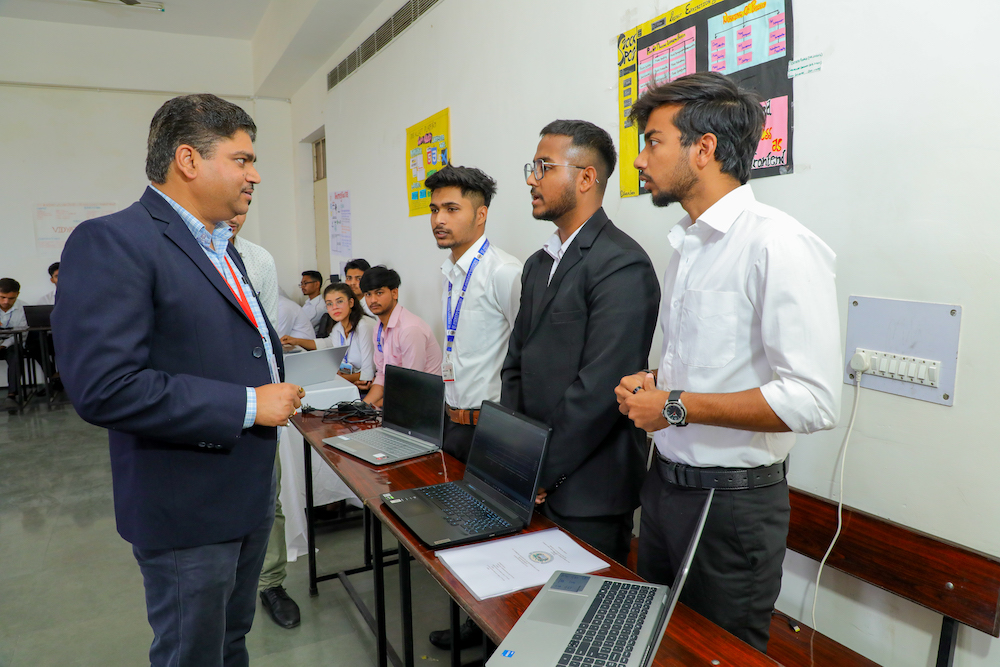
A Bachelor of Computer Application (BCA) is a three year undergraduate program that equips students with a wide range of skills that are valuable in the IT industry and beyond.
Here’s a detailed list of skills developed during a BCA program:
Technical Skills
Programming Languages:
Proficiency in languages such as C, C++, Java, Python, and others.
Understanding of syntax, semantics, and best coding practices.
Database Management:
Knowledge of SQL and database management systems like MySQL, Oracle, and MongoDB.
Skills in database design, normalization, and data manipulation.
Web Development:
HTML, CSS, JavaScript for front-end development.
Server-side scripting languages such as PHP.
Frameworks and libraries like React, Angular, and Node.js.
Software Development:
Principles of software engineering, including software development life cycle (SDLC), agile methodologies, and version control systems like Git.
Experience with integrated development environments (IDEs) such as Eclipse, Visual Studio, and PyCharm.
Operating Systems:
Understanding of operating systems concepts, including process management, memory management, and file systems.
Hands-on experience with operating systems like Windows, Linux, and Unix.
Networking:
Basics of computer networks, including OSI and TCP/IP models.
Knowledge of network protocols, network security, and wireless networks.
Mobile Application Development:
Development of mobile applications for platforms like Android and iOS using technologies like Java, Kotlin, Swift, and Flutter.
Analytical and Problem-Solving Skills
Algorithm Design and Analysis:
Understanding of data structures and algorithms, including sorting, searching, and optimization techniques of data structures.
Ability to design efficient algorithms and analyze their time and space complexity.
Critical Thinking:
Ability to approach problems logically and systematically.
Use of analytical tools and techniques to solve complex issues.
Management and Soft Skills
Project Management:
Understanding of project management principles, including planning, execution, monitoring, and closure.
Familiarity with tools like Microsoft Project, JIRA, and Trello.
Communication Skills:
Development of written and verbal communication skills to effectively convey technical information.
Experience in creating technical documentation, reports, and presentations.
Team Collaboration:
Ability to work effectively in team settings, understanding team dynamics, and collaborative problem-solving.
Experience in group projects and peer programming.
Time Management:
Skills in prioritizing tasks, managing time effectively, and meeting deadlines.
Balancing academic workload with project work and practical assignments.
Additional Skills
Ethical and Social Responsibility:
Understanding of professional ethics in IT.
Awareness of the social and environmental impact of technology.
Entrepreneurial Skills:
Basic understanding of entrepreneurship, startups, and innovation in technology.
Exposure to business models, market analysis, and financial planning.
Research Skills:
Ability to conduct research and stay updated with the latest technological advancements.
Experience in academic research, technical writing, and presentations.
Practical Experience
Internships and Industry Exposure:
Practical experience through internships in IT companies, startups, and other organizations.
Exposure to real-world projects and industry practices.
Capstone Projects:
Development of comprehensive projects that integrate various skills learned during the program.
Experience in project planning, development, testing, and deployment.
Personal Development
Self-Learning:
Encouragement to engage in self-learning and continuous professional development.
Use of online resources, courses, and certifications to enhance knowledge and skills.
BCA Course Objectives

Main Objectives of BCA course are as follows:
Foundational Knowledge
To provide students with a solid foundation in computer applications, including fundamental concepts of programming, software development, and computer systems.
Technical Skills:
To develop technical proficiency in various programming languages, database management, web technologies, and software engineering.
Problem-Solving Abilities
To enhance analytical and problem-solving skills through practical assignments and projects, enabling students to address real-world computing challenges.
Industry Readiness
To prepare students for the IT industry by incorporating current technologies and practices, as well as offering internships and industry projects.
Professional Development
To cultivate soft skills such as communication, teamwork, and project management, essential for professional growth in the tech industry.
Advanced Learning
To lay a strong groundwork for further studies in computer science or related disciplines, providing a pathway to postgraduate programs.
Benefits of Pursuing BCA
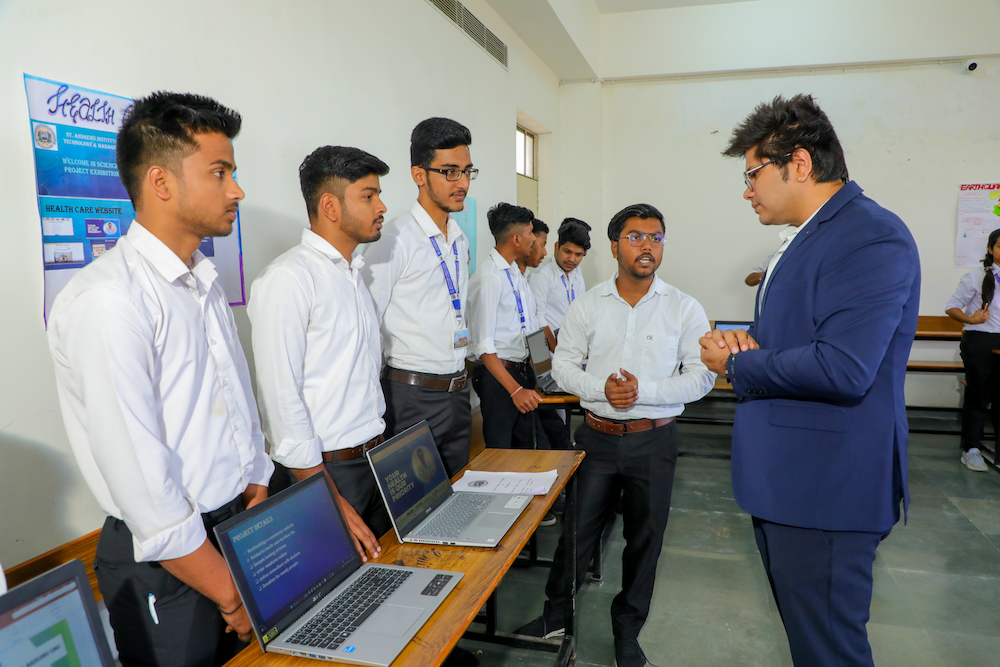
Benefits of pursuing BCA are as follows:
Career Opportunities
BCA Graduates can pursue various roles, including software developer, web developer, system analyst, IT consultant, and network administrator.
Skill Development
Comprehensive training in programming, software development, and system management equips BCA Graduates with versatile technical skills.
Practical Experience:
The curriculum includes lab work, projects, and internships, ensuring that BCA Graduates gain hands-on experience and practical knowledge.
Industry Exposure
Interaction with industry professionals through seminars, workshops, and internships helps BCA students understand current market trends and requirements.
Placement Assistance
Many institutions offer dedicated placement support, helping a BCA graduate to secure jobs in reputed companies.
Foundation for Further Studies
The course provides a strong base to BCA Graduates for pursuing higher education such as MCA (Master of Computer Applications), MBA in IT, or other specialized certifications.
Adaptability
The skills and knowledge gained are applicable across various domains, making BCA students adaptable to multiple tech-related roles.
Personal Growth
The course fosters critical thinking, creativity, and continuous learning, contributing to overall personal and professional development.
Top BCA Colleges in India
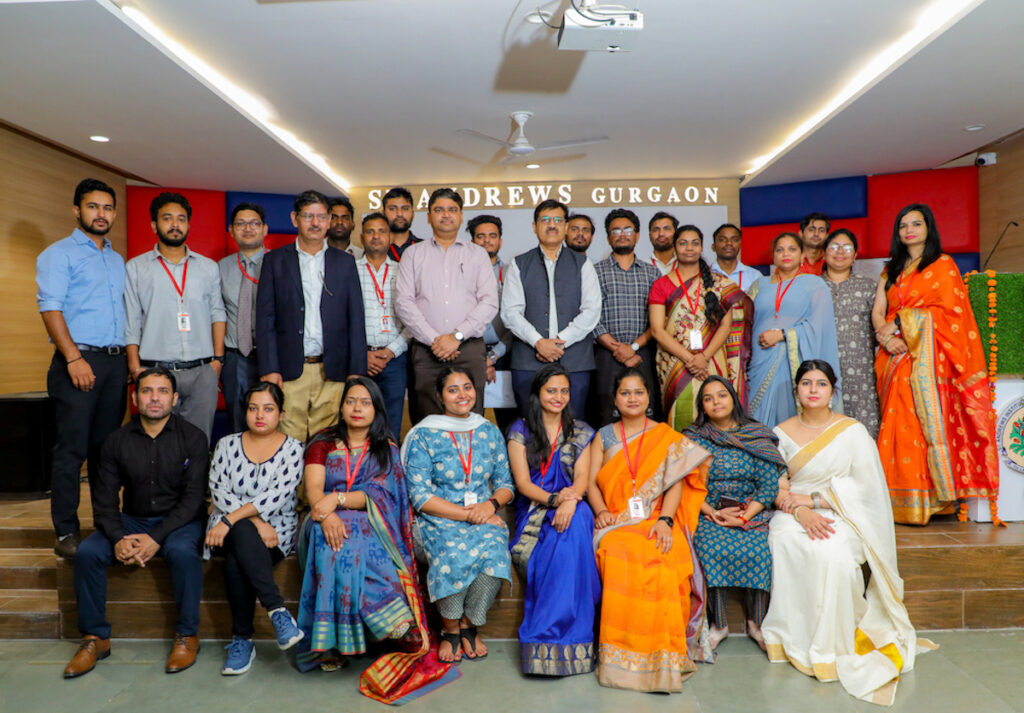
Here are some of the top BCA colleges in India, known for their quality education, experienced faculty, and excellent infrastructure.
University of Delhi, Delhi
Government colleges affiliated with DU such as:
Shaheed Sukhdev College of Business Studies (SSCBS)
Maharaja Agrasen Institute of Management Studies (MAIMS)
Deen Dayal Upadhyaya College (DDUC)
Maharaja Agrasen College
Aimed at providing students with a strong foundation in computer science and its applications.
St. Andrews Institute of Technology & Management
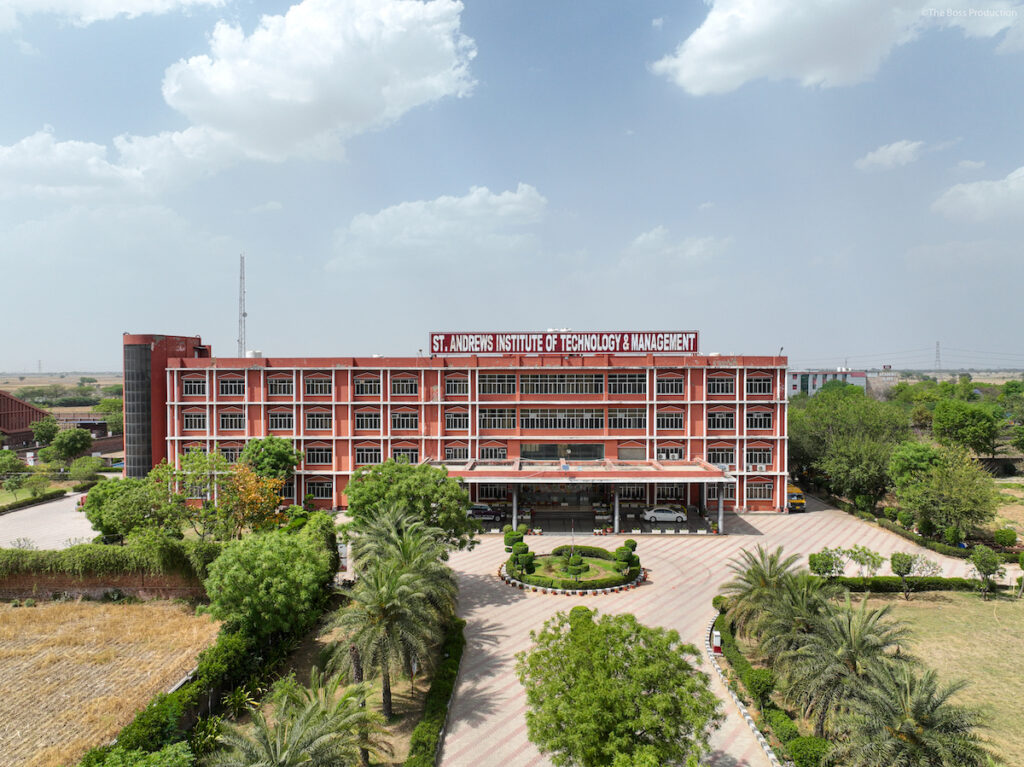
St. Andrews Institute of Technology & Management (SAITM) offers a Bachelor of Computer Applications (BCA) program aimed at providing students with a strong foundation in computer science and its applications.
Banaras Hindu University (BHU), Varanasi
BHU offers a BCA course through the Faculty of Science, known for its academic excellence and research opportunities.
Government colleges affiliated with the University of Calcutta, such as
Bhairab Ganguly College offer BCA course known for their academic rigor and industry relevance.
University of Madras, Chennai:
Colleges affiliated with the University of Madras, such as
Queen Mary’s College offer BCA course with a strong emphasis on theoretical concepts and practical skills.
University of Pune, Pune:
Government colleges affiliated with the University of Pune, such as
Brihan Maharashtra College of Commerce (BMCC) offer BCA course with a focus on industry-oriented curriculum and placement support.
University of Hyderabad, Hyderabad
The School of Computer and Information Sciences at the University of Hyderabad offers a BCA degree known for its interdisciplinary approach and research opportunities.
Christ University, Bangalore
Christ University, Bangalore offers a BCA program renowned for its quality education, experienced faculty, and excellent infrastructure.
Career or Jobs Opportunities after BCA Degree
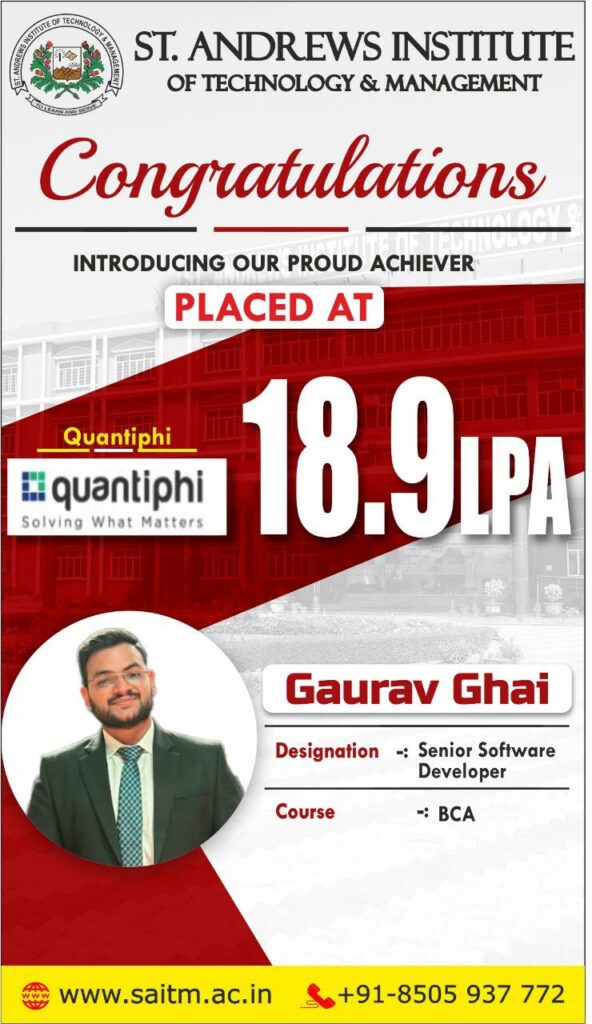
A Bachelor of Computer Application degree (BCA) undergraduate degree offers a wide range of opportunities in India, given the country’s rapidly growing IT industry and digital transformation across various sectors. BCA Graduates get a good average salary ranging between INR 2.5 to 4 lakhs per annum for freshers.
Here are some key areas where a BCA degree can be valuable:
Job Opportunities in the IT Field
Software Developer/Engineer: Software engineers develops software application, websites, and mobile apps.
Web Developer: Creating and maintaining websites.
System Analyst: Analyzing and designing IT solutions for businesses.
Network Administrator: Managing and maintaining computer networks.
Database Administrator: Managing and organizing databases.
Technical Support: Providing technical assistance and support for IT-related issues.
IT Consultant: Advising businesses on how to use computer technology to meet their objectives.
Opportunities in Government Sector
Various government departments require IT professionals for maintaining their IT infrastructure and services.
Public sector banks and financial institutions also hire BCA graduates for IT roles.
Higher Studies
MCA (Master of Computer Applications): A popular postgraduate option for BCA graduates to deepen their technical knowledge and improve their career prospects is pursuing a master’s degree, such as the Master of Computer Applications (MCA).
MBA (Master of Business Administration): For those interested in moving into managerial roles within the IT industry.
Specialized Master’s Programs: In fields like data science, cybersecurity, artificial intelligence, and more.
Self-Employment and Entrepreneurship
Freelancing: Offering web development, app development, and other IT-related services.
Startups: Launching your own tech-based startup, taking advantage of India’s supportive ecosystem for entrepreneurs.
Other Emerging Fields
Digital Marketing: Leveraging IT skills for online marketing, SEO, and social media management.
E-commerce: Working with online retail companies in various technical roles.
Cloud Computing: Specializing in cloud technologies, which are in high demand.
Certifications and Additional Skills
Pursuing certifications in specific technologies (like AWS, Azure, Google Cloud, etc.) can significantly enhance job prospects.
Learning new programming languages, frameworks, and tools can provide a competitive edge in the job market.
Teaching and Academics
Pursuing a career in academia by becoming a lecturer or professor in computer science and related subjects.
Engaging in research and contributing to technological advancements.
Global Opportunities
Many multinational companies in India provide opportunities to work on international projects and even offer placements abroad.
Average Salary Expected After BCA Course

The average salary expected after completing a Bachelor of Computer Applications (BCA) course in India can vary depending on several factors such as the job role, employer, location, skills, and level of experience.
Here’s a general overview of the salary expectations for BCA graduates in entry-level positions across various roles:
Software Developer/Engineer
Entry-level software developers focus on software development and they can expect an average salary ranging from ₹3 lakh to ₹6 lakh anually. Salaries may vary based on the employer, technology stack, and location.
Web Developer
Entry-level web developers can expect an average annual salary ranging from ₹2.5 lakh to ₹5 lakh. Salaries may vary based on proficiency in front-end or back-end development, experience level, and geographic location.
Database Administrator (DBA)
Entry-level database administrators can expect an average annual salary ranging from ₹3 lakh to ₹6 lakh. Salaries may vary based on the type of database systems managed and the organization’s size and industry.
Network Administrator/Engineer
Entry-level network administrators or engineers can expect an average annual salary ranging from ₹2.5 lakh to ₹5 lakh. Salaries may vary based on the complexity of the network infrastructure and industry demand.
Systems Analyst
Entry-level systems analysts can expect an average annual salary ranging from ₹3 lakh to ₹6 lakh. Salaries may vary based on the industry domain, analytical skills, and experience with system analysis methodologies.
IT Consultant
Entry-level IT consultants can expect an average annual salary ranging from ₹3 lakh to ₹6 lakh. Salaries may vary based on the consulting firm, specialization area, and client engagements.
Quality Assurance (QA) Analyst/Tester
Entry-level QA analysts or testers can expect an average annual salary ranging from ₹2.5 lakh to ₹5 lakh. Salaries may vary based on expertise in testing methodologies, tools, and technologies.
Top Companies Hiring BCA Graduates
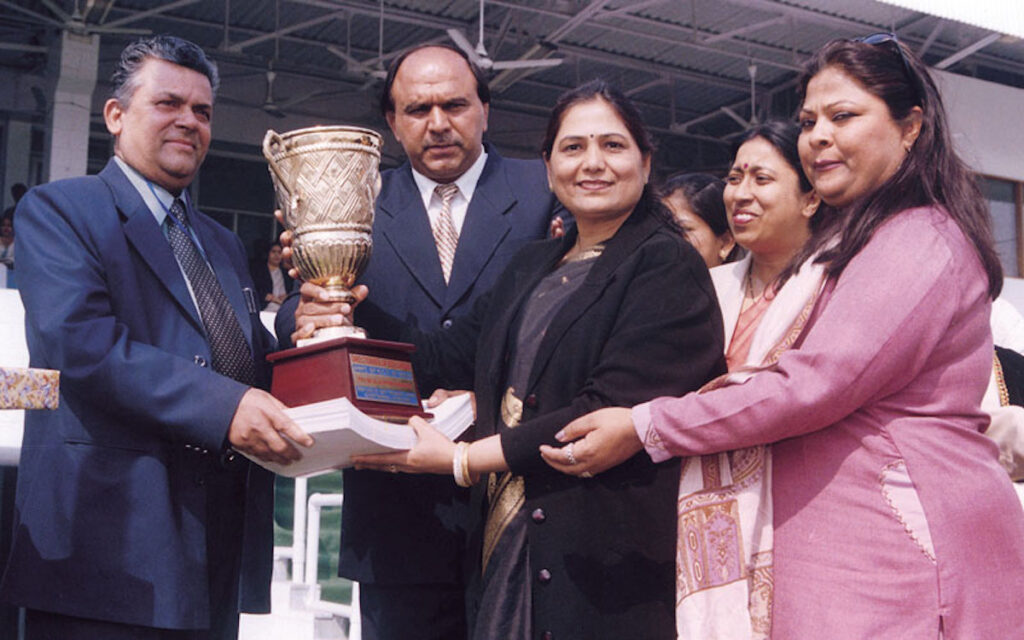
BCA Graduates have a wide range of opportunities in the IT and software industry. Many top companies actively recruit BCA graduates for various roles.
Here are some of the top bca recruiting companies:
Tata Consultancy Services (TCS)
Roles: Software Developer, System Analyst, IT Consultant
Description: TCS is one of the largest IT services firms in the world, offering a variety of technology solutions and services.
Infosys
Roles: Software Engineer, System Engineer, Business Analyst
Description: Infosys provides IT consulting, software development, and outsourcing services globally.
Wipro
Roles: Project Engineer, Software Developer, IT Support
Description: Wipro offers information technology, consulting, and business process services.
HCL Technologies
Roles: Software Developer, Network Engineer, Technical Analyst
Description: HCL Technologies is a leading global IT services company that helps enterprises reimagine and transform their businesses through digital technology transformation.
Accenture
Roles: Application Development Associate, IT Analyst, Technology Consultant
Description: Accenture provides consulting, technology, and outsourcing services with a focus on helping clients achieve digital transformation.
IBM
Roles: Software Engineer, Data Analyst, Cloud Engineer
Description: IBM is a multinational technology company that offers hardware, software, and consulting services.
Capgemini
Roles: Software Consultant, Technical Analyst, Application Developer
Description: Capgemini provides consulting, technology, professional, and outsourcing services.
Cognizant
Roles: Programmer Analyst, Software Developer, IT Consultant
Description: Cognizant is a multinational corporation that provides IT services, including digital, technology, consulting, and operations services.
Tech Mahindra
Roles: Software Developer, Network Engineer, System Analyst
Description: Tech Mahindra offers IT services and solutions to various industries worldwide.
Oracle
Roles: Database Administrator, Software Developer, Cloud Specialist
Description: Oracle is a global leader in database software, cloud solutions, and enterprise software products.
Amazon
Roles: Cloud Support Associate, Software Programming Engineer, Data Analyst
Description: Amazon, a global e-commerce giant, also offers cloud computing services through Amazon Web Services (AWS).
Microsoft
Roles: Software Engineer, IT Support Specialist, Data Scientist
Description: Microsoft is a multinational technology company that develops, licenses, and supports a wide range of software products, services, and devices.
Deloitte
Roles: Business Technology Analyst, IT Consultant, Software Developer
Description: Deloitte is a multinational professional services network offering audit, consulting, tax, and advisory services.
KPMG
Roles: IT Advisory Associate, Software Developer, Data Analyst
Description: KPMG is a global network of professional services firms providing audit, tax, and advisory services.
Ernst & Young (EY)
Roles: IT Risk Analyst, Software Developer, Technology Consultant
Description: EY is a multinational professional services firm offering advisory, assurance, tax, and transaction advisory services.
Additional Recruiters:
Flipkart
Paytm
L&T Infotech
Mindtree
Adobe
Dell Technologies
Hexaware Technologies
SAP Labs
Birla soft
FAQs
What is a Bachelor of Computer Applications course?
The Bachelor of Computer Applications (BCA) is an undergraduate degree course in computer applications. It focuses on providing students with the foundational knowledge and skills in computer science and information technology.
What is the duration of a BCA course?
The BCA course typically spans three years, divided into six semesters.
What are the eligibility criteria for a BCA course?
Completion of 10+2 or equivalent examination from a recognized board.
Minimum aggregate marks (varies by institution).
Some institutions may require a background in Mathematics or Computer Science.
Is Mathematics compulsory for BCA?
While many institutions prefer students with a background in Mathematics, it is not always compulsory. Some colleges accept students from any stream provided they meet the other eligibility criteria.
What subjects are covered in the BCA syllabus?
Core subjects typically include Fundamentals of Computer and IT, Programming Languages (C, C++, Java, Python), Database Management Systems (DBMS), Software Engineering, Operating Systems, Web Technology, Data Structures, Computer Networks, and Mathematics for Computing.
What are the career opportunities after completing a BCA?
Career options include roles such as Software Developer, Web Developer, System Analyst, Database Administrator, Network Administrator, IT Support Technician, Mobile App Developer, and Cyber Security Analyst.
Can I pursue higher education after BCA?
Yes, many BCA graduates pursue higher education such as MCA (Master of Computer Applications), MBA (Master of Business Administration) with a focus on IT, or specialized certifications in areas like programming, database management, and network security.
What is the difference between BCA and B.Tech in Computer Science?
BCA focuses on software applications and the theoretical aspects of computer science, whereas B.Tech in Computer Science is more comprehensive, covering both hardware and software aspects along with in-depth technical and engineering principles.
Are there any entrance exams for admission to the BCA course?
Some institutions conduct entrance exams for BCA admissions, while others may offer admission based on merit in the 10+2 examination.
What are different type of BCA Courses?
Regular, Distance Learning, Online, Integrated BCA-MCA, Lateral Entry, Specialization in Data Science, Cyber Security, Cloud Computing, AI, Mobile Development.

